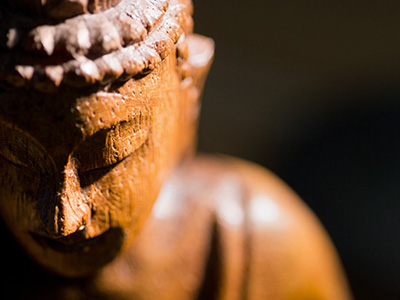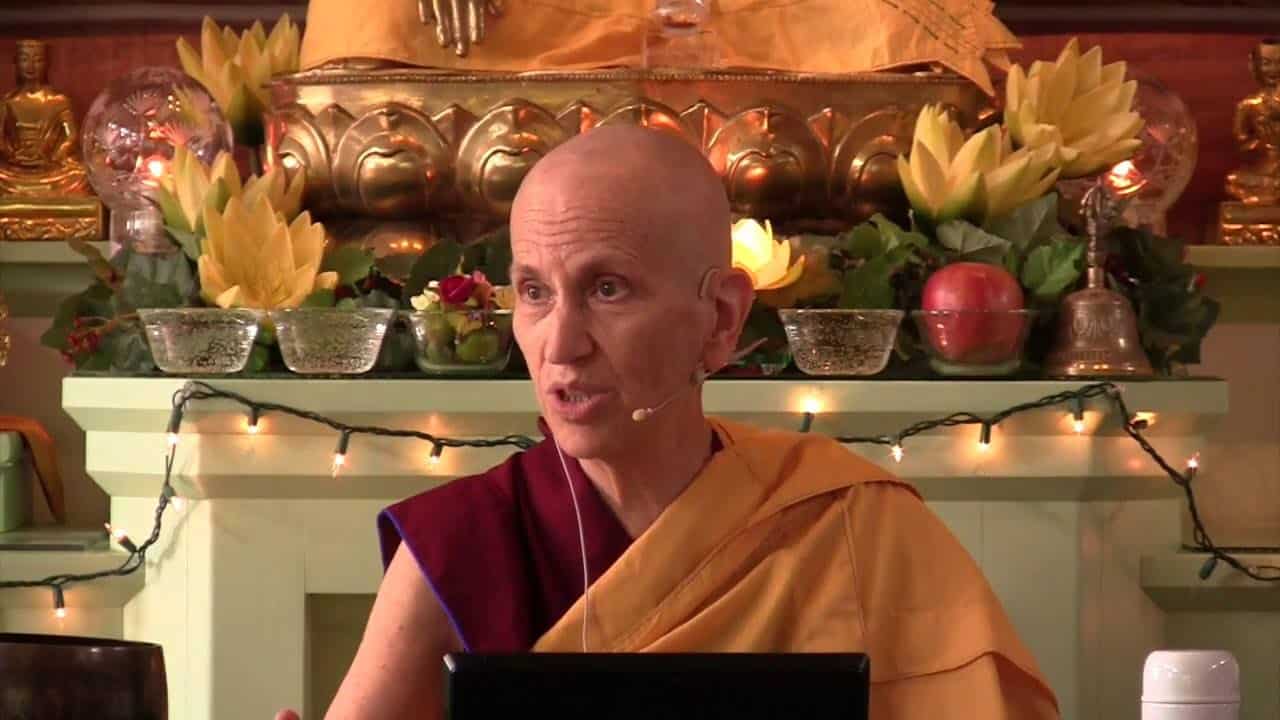The advantages of bodhicitta

The altruistic intention, or bodhicitta in Sanskrit, has incredible advantages, such as being able to purify negative karma very rapidly, creating vast amounts of merit, and gaining realizations of the path. Here some other advantages.

When we cherish others, cultivate bodhicitta, and act on it, we’re helping to fulfill the Buddhas’ aim. (Photo by © WavebreakMediaMicro / stock.adobe.com)
- We please the Buddhas
- Bodhicitta is our real friend that never deserts us
- Our lives become very purposeful
- It is the best way to serve others
- We become balanced and relate to people in a direct and straightforward way
- We will not feel alienated or discouraged
- Bodhicitta eliminates fear
- Bodhicitta frees us from our pride, conceit, and arrogance
- “Old age” insurance
- A very good antidote for loneliness
By having an altruistic intention, love and compassion, we endeavor to act constructively, which is especially pleasing to the Buddhas. The Buddhas are delighted when we work for the benefit of others with a sense of altruism and compassion. The Buddhas’ entire focus is on benefiting sentient beings, so when we cherish others, cultivate bodhicitta, and act on it, we’re helping to fulfill the Buddhas’ aim.
Ordinary friends come and go. They aren’t completely reliable and aren’t always with us. But when we have bodhicitta in our heart, it will always be there. No matter what happens, good or bad, bodhicitta is reliable and will always be present in our heart, to help us calm our mind and make our lives meaningful. It’s our best friend that never judges us and always encourages us to do what is virtuous. Bodhicitta will never lead us astray.
When we have altruism and compassion for others, our life becomes very purposeful. We have a sense of meaning in our lives; something that drives and directs our energy in a good direction. We feel that we can do something to benefit others. The situation in the world doesn’t overwhelm us anymore, and we develop the ability to cope with it. This is really important as the world gets crazier. The crazier the world, the more important and necessary altruism, love and compassion are. When we see that sentient beings’ minds are controlled by ignorance, anger, and attachment, we understand suffering in a very deep way, and compassion will automatically arise.
If you wish to help your family, the best way to help is through altruism, love and compassion. When we are overwhelmed by self-centeredness, we do things that harm our family, but when we cultivate the aspiration to become a Buddha for the benefit of others, we benefit our family members as well as everyone else. If we want to help our country, the best way is through having compassion and bodhicitta. When somebody in a family, or the society has an altruistic intention, that person’s actions automatically contribute to the benefit of the family, the society, and the world. Therefore, the best way to really serve others is to change our mind to one of altruism.
If we don’t have altruism and try to be people-pleasers to win others’ approval, our actions will be based on wanting or looking for something in return. Even though we may try to help, it’s not going to work well because our motivation is not genuine kindness—we want something for ourselves. When we have an altruistic intention and help simply because we want others to be happy and free of suffering, then our actions are beneficial and no ego trips are involved.
When we have bodhicitta, we won’t feel alienated or discouraged anymore. They say that bodhicitta is a very good natural anti-depressant. We get depressed when we are overwhelmed by situations, and feel helpless. When we have a sense of altruism, we realize that there’s a lot that we can do, and we feel encouraged and uplifted. We see a path out of misery and confusion, hence there is no reason to be depressed. Although the path may take a long time to accomplish, we’re joyful because we know we’re going in the right direction. By the force of love and compassion, we develop the inner strength and self-confidence to go through difficulties with a balanced mind.
Some people are very fearful and anxious about what could happen in their lives. Fear comes when there is a lack of clarity, when we have a lot of attachment and are afraid of losing the things we are attached to. Fear obscures our mind so we can’t find our own internal resources to help us deal with a situation. But when we develop love and compassion for others, there is a sense of confidence that eliminates feelings of weakness and confusion. We are connected with our own internal resources, we trust our own wisdom, and we know when to ask others for help. Because we are not attached to our own ego, body, possessions or reputation, we don’t fear losing them. We know that even if things don’t work out the way we want them to, the world won’t end. Altruism makes the mind very courageous, strong, and optimistic.
When we are altruistic, we look upon others as equal to ourselves; we recognize that everyone—no matter who they are—is the same in terms of wanting happiness and freedom from suffering. Because we see ourselves and others as equal, there’s no reason for pride to arise. As we are not seeking a good reputation and praise, we don’t need to put on a false air of arrogance. We really don’t care if we have a fantastic reputation or not because we see that reputation is rather meaningless. Neither a good nor a bad reputation makes us healthy, gives us a long life, or makes us closer to awakening.
Bodhicitta is also very good old age insurance. If you have an attitude of love and compassion, you don’t need to worry about who’s going to look after you when you’re old because you have spent your life having a kind attitude toward others and others are naturally attracted to you. They want to reciprocate your kindness.
When we feel lonely, we feel disconnected from others because there isn’t a bond of kindness. But when we have bodhicitta, we definitely feel connected to other people because we realize we are all the same in wanting happiness and not wanting pain. Our heart opens towards others, and we become aware and conscious of the kindness we receive from friends, relatives, strangers and even enemies. Bodhicitta gives us the strength to overcome wallowing in self-pity when challenging situations crop up. We remember that throughout our lives, we have been the recipients of so much kindness from others. The fact that we are alive now proves this, because without others’ kindness we would not have food, clothing, shelter, and medicine. We would not know how to read or write. Everything we know and all our talents come due to the help, encouragement, and support of others. Instead of thinking we are the recipients of a lot of cruelty, we realize that others have been extraordinarily kind to us.
What we emphasize and pay attention to influences our experience. Continuously recalling all that we have received from others eliminates our feelings of alienation and loneliness. Instead we feel grateful and reach out to connect with others. Of course, they appreciate this and respond with kindness.
Venerable Thubten Chodron
Venerable Chodron emphasizes the practical application of Buddha’s teachings in our daily lives and is especially skilled at explaining them in ways easily understood and practiced by Westerners. She is well known for her warm, humorous, and lucid teachings. She was ordained as a Buddhist nun in 1977 by Kyabje Ling Rinpoche in Dharamsala, India, and in 1986 she received bhikshuni (full) ordination in Taiwan. Read her full bio.


